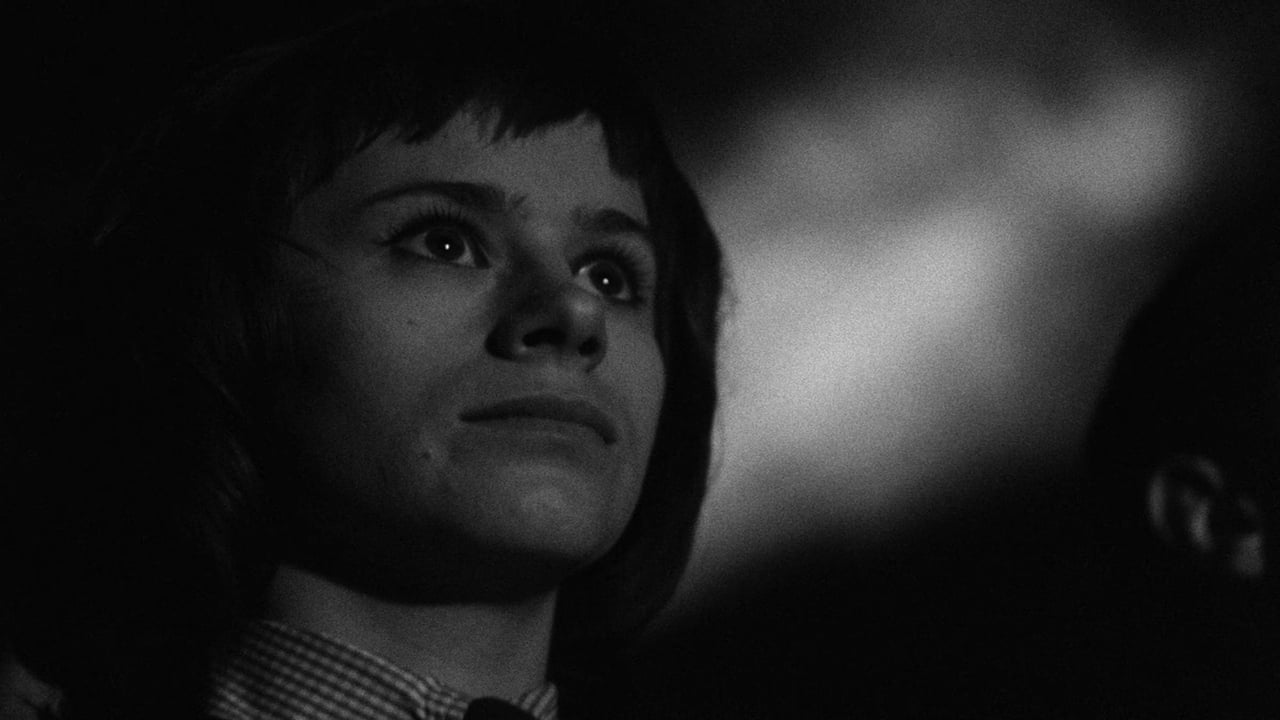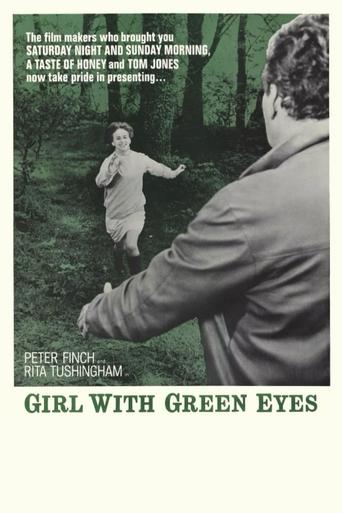Titreenp
SERIOUSLY. This is what the crap Hollywood still puts out?
Organnall
Too much about the plot just didn't add up, the writing was bad, some of the scenes were cringey and awkward,
Gutsycurene
Fanciful, disturbing, and wildly original, it announces the arrival of a fresh, bold voice in American cinema.
InformationRap
This is one of the few movies I've ever seen where the whole audience broke into spontaneous, loud applause a third of the way in.
MisterWhiplash
Girl with Green Eyes seems typical of the period of British "Kitchen-Sink" drama films (I saw it as the 2nd part of a double bill with The Leather Boys and the theme being Rita Tushingham performances, though this is dialed down a little from that turn), and that's what's good but not terribly memorable about it all. It's realistic in some of the basic character interactions, though it has a bouncier/more emotionally-cued up score than the material should have, if that makes sense. It seems like a minor point but Desmond Davis clearly wanted to get a lot of emotional/romantic/tragic pull out of the music by John Addison, and it may have been too much for this lot of realism (how typical this is by the way, it's produced by Tony Richardson).The story is actually an Irish-Kitchen-Sink movie, though with a couple of British touches: a young girl in Dublin, who originally was from a fairly lower-class farm that was highly religious but working *very* Irish class all the same, is working at a bookstore and finds that there's an author that she would like to meet along with her friend/roommate Baba. Peter Finch is this man, and soon Kate, the girl of the title, takes a real liking to him, and after not too long he to her. So they "hook up", so to speak, and this brings on problems, both external in force (he's technically married with a kid in another country, she's got pressure from her family not to have anything to do with this "Godless heathen), and more about the fact that it's a man who could be old enough, if only barely, to be her father.This is a story explored in many kind of films, whether it's throw-a-dart-and-hit a Philip Roth story, or of course Manhattan. There's enough chemistry and charm between the two leading people as Tishingham, even dialed down, is delightful, and Finch does a lot playing usually-crusty and mostly sardonic/sarcastic speaking (if there had been a remake some years back I could've seen Alan Rickman in his role), plus Lynn Redgrave being wonderful and funny in her supporting place. But there's not much here that elevates it past its time and place; it's a perfectly fine drama, and it doesn't distinguish itself past some insights, which are only insightful up to a point, that you may need to grow as a person (or can never meet the other on the flipside due to losing "youthful vigor" as an aging man) to have a relationship work sometimes.There's a nice, tender feeling to the film, Finch and Tushingham make a good pair on screen (precisely because we kind of know, deep down, it's not only not going to work but it can't not ever work, if that makes sense, so let's see them in the little moments) and that should work for anyone looking for that. Although some things that contribute to the 'hasnt-aged-terribly-well' is, say, when the film is edited so early on in their courtship Eugene and Kate talk and one part of a sentence begins in a new location and then another and another, and it feels distracting.
wvisser-leusden
The theme of 'Girl with Green Eyes' isn't new at all: a young girl has an affair with a man who could have been her father. Predictably it miscarries.Apart from this, 'Girl' is great. Excellent acting to start with, set in a very recognizable Dublin- & Irish countryside-scenery. All shot in a pretty down-to-earth way, allowing you to identify easily.'Girl's plot inevitably involves the Irish Roman Catholic Church, whose influence was strong in those days. Its fairly slow and uncomplicated pace is quite in tune with the 1960-s society. And its shooting in black and white supports the mood of this enjoyable film very well.My only criticism: this picture of Ireland represents a very clean country. Having been there myself in the early Seventies, I remember a not-to-ignore lack of hygiene. In shops, in restaurant's bathrooms, as well as in many people's clothing.
vallerose
Lovely, lyrical, bittersweet romance with young Rita Tushingham as a simple, convent-reared shop girl in Ireland who forms a relationship with a much older man, an intellectual, worldly agnostic (and married, but separated), living in isolation on a farm, writing books, in a finely wrought performance by Peter Finch. Tushingham and her chatterbox roommate, nicely played by Lynn Redgrave, casually meet on Finch's farm. Tushingham finds him attractive, with age difference no object, and invites him to tea in the city. Finch, somewhat world weary and wary of getting himself into an affair with a young, innocent girl, succumbs to her persistence and after a few meetings they consummate their relationship tenderly in scenes of gentle mutual affection. But, eventually, with family and priest strongly admonishing her for her "adultery" and ultimately Finch's withdrawal, Tushingham moves to England and finds relationships with men her own age and philosophically accepts the end of one, memorable phase of her life and the beginning of another. But this is not a plot-driven film – it's all character. As a sagacious film critic said a long time ago of another actress in another film (Audrey Hepburn in "A Nun's Story"), the theater is all in her face and it's Tushingham's wonderfully wistful performance, all manifested in those big, expressive eyes, that is the central and salient feature of this fine film, and which gives it its special quality.Marc Feldman 3-8-2005
humanoid
Long into watching this studiously "small," slice-of-life portrait of a naive young woman, I was still wondering if the film would turn out, in the end, to have been worth watching. Earnest in its desire to be grittily true-to-life, in the neo-realist manner of the Angry Young Men, it is also clearly intoxicated with the quotidian lyricism and plain-spoken poetry of la nouvelle vague. It attempts to be charming and brutally frank at the same time, and manages, to some extent, to carry it off.But will we end up caring about Tushingham's somewhat obtuse small town escapee, or Finch's sophisticated cold fish? Or will we be left with the rather sodden sensation that we've wasted our time eavesdropping on bores? For my part, I was pleasantly surprised. The story ends with the palpable sense that Kate has grown up a bit, and Eugene has grown a little older and sadder. We've looked on as two people have lived their bittersweet lives, much as we live our own -- and we're a little sad to bid them adieu.To sum up: not as fresh and appealing today as it probably seemed in its time, but still rewarding and worthwhile.

